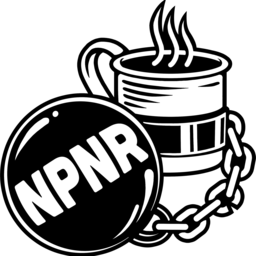It’s August 10, 2022. Here’s the rundown:
Big Pharma readies the cash-hammer
“Corporations are people, my friend.” So, become one?
Numbers, links, and more
I also wrote a guest piece for the Tuttle Ventures Newsletter this week, which you can read here:
Big Pharma readies the cash-hammer
A big change to Medicare drug pricing is in the works, but Big Pharma isn’t going to take it lying down.
It’s pretty common to see people and organizations effectively punished for doing the right thing. But it’s not often that you see someone — or a group of someones and somethings — collectively offer up threats so brazenly to those who are trying to address some issues.
But that’s exactly what the leader of the nation’s top “big pharma” industry groups did to Democratic legislators last week. Steve Ubl, the leader of Pharmaceutical Research and Manufacturers of America (PhRMA), effectively wielded the big pharma’s money as a weapon when he sent a letter to Democratic leaders, as they appear set to pass a reconciliation package that includes a critical change to drug pricing rules, among many other things. Effectively, that change would allow Medicare to negotiate prices with drug manufacturers.
Here’s a portion of Ubl’s letter:
“Proponents are driving the bill under the guise that it will allow Medicare to “negotiate” with biopharmaceutical companies. What the bill actually does is give manufacturers non-negotiable ultimatums – accept whatever price the Secretary of Health and Human Services sets, pay a massive excise tax of as much as 95% of a medicine’s sales or remove all of your products from Medicare and Medicaid. That’s not negotiation, it’s government price setting.”
The issue here is that the pharmaceutical industry is so large and powerful that it is acting as the price-setter. Trying to scare people about government price-setting doesn’t really work when you’re a monopoly power doing the price-setting yourself, does it? It just shifts control of the lever.
That’s an argument for another day, though.
But what you really hate to see is when the massive corporate behemoth attempts to wield its monopolistic power to get what it wants — by changing laws (or leaving current laws in place) that aren’t in the best interest of Americans. It’s estimated that by instituting negotiating rules for Medicare, the federal government could save $100 billion per year.
That’s where Ubl’s threat came in, per Politico:
“Regardless of the outcome in the coming weeks, this fight isn’t over,” Ubl said in an interview. “Few associations have all the tools of modern political advocacy at their disposal in the way that PhRMA does.”
Thursday’s letter largely reiterates arguments the industry has made throughout the process, with the executives from companies including Pfizer and Merck saying that passing the legislation would lead to fewer treatments and cures — particularly for tough illnesses like cancer and Alzheimer’s disease that can be difficult and costly to develop.
Ubl said that one of PhRMA’s member companies has 15 drugs in the pipeline that would be nixed if the bill becomes law.
“This is a very consequential vote. Those members who vote for this bill will not get a free pass. We’ll do whatever we can to hold them accountable,” he said.
So, we have an industry group telling lawmakers that their attempt to change laws in the public interest will be “consequential,” that they won’t “get a free pass,” and that they’ll use “all the tools” to “hold them accountable.”
Great. Money as a weapon, folks. This is why you don’t see lawmakers attempt to make meaningful changes all that often: Entrenched interests stand ready to rain blows.
If businesses are people, should you become one?
It’s time to rethink the worker-employer paradigm.
A story from Business Insider caught my attention recently — it was about remote workers who outsource their work to other people. Basically, some workers hire other, cheaper workers, to do their job for them (or maybe write some code to automate their tasks), pay them less, and pocket the difference. At the end of the day, they do little or no work and take home a paycheck.
While there can certainly be issues with this, it’s rubbing a lot of employers the wrong way — which is understandable. You hired Teddy to do the job, not Teddy’s army of underlings ten time zones away, after all. And if the employee writes some code to automate their tasks? Well, they’ve improved the efficiency of the company, but have absolutely no incentive to share that with their employer, because then they’d be replaced.
But when you think about it, these workers who are outsourcing their work are really just acting as their own small businesses and doing what’s in their self-interest. We certainly don’t blame corporations or politicians for doing the same — and often encourage it, in many respects.
What if we took Milton Friedman’s famous theory — that businesses have no responsibility to the public or society, and only exist to maximize profits for themselves — and apply it to workers? That would mean that workers should extract every last penny in wages possible with no regard for anyone or anything else — and that they shouldn’t be criticized for it.
Maybe a bit of a stretch, but you see what I’m getting at.
But there’s something at the heart of this that I think is important: We are all businesses in our own right, whether we realize it, or not. Most of us are small, tiny businesses, with only one client: Our employers. You’re offering up your time or skills to the market, and your employer is buying — at a price that the two of you negotiate.
Some people’s time and skillsets are more valuable than others. So, a person with a more in-demand and scarcer set of skills or abilities can charge more for their product. And so on.
Most people don’t think of themselves as businesses. Just workers. Perhaps we all should, though?
If you were to become a business and sign a contract with a single client — your employer — and reap the benefits of being a business. Namely, write-offs. Imagine writing off all of the expenses related to your job: Mileage and gas costs for commuting, every meal, and lunch break is now a “business lunch,” and so on.
Sounds stupid, but this is exactly what many wealthy people do. In fact, many of them turn their hobbies into “businesses,” farming expenses and write-offs, which are used to reduce their taxable incomes. Have fun, and lower your taxes, too!
ProPublica did a story on this very topic last December and focused on the horses at the Kentucky Derby:
Even if their horses finished far out of the money, some owners had a salve for the sting of defeat: tax write-offs. Six of the 20 thoroughbreds selected to run in this year’s Derby were owned by ultrawealthy Americans whose horse-racing operations have produced a combined $600 million in losses that they could use to offset their federal taxable income, according to ProPublica’s analysis of IRS data.
Not bad! Why aren’t we all doing this?
Seriously, maybe we should. I, personally, have a specific skillset (I know, I should be a whole lot better at it, but here you are, reading this!), and transitioned from selling my skills and labor to one employer to forming a business entity. And now I pay an accountant to figure out my expenses — but I can tell you that my phone bill, portions of my internet bill, and other things are now business write-offs.
Of course, not everyone can do this. But let’s play make-believe to see how it could shake out for someone who is, say, a dishwasher at a “golden” all-you-can-eat buffet chain restaurant.
You’re a dishwasher, earning the federal minimum wage of $7.25 per hour. You say “enough,” file some paperwork, and are now a single-member LLC: “Dishslayer LLC.” Your slogan is “Scrubbing pans since time began” or “we have an itch to wash that dish” or something stupid like that. It might get a laugh every once in a while.
You approach your employer and convince them to hire Dishslayer LLC to handle their dish-doing duties. You negotiate a rate, they accept, and you’re off the races — and writing off all of your costs and expenses related to getting business done.
Easy, right?
There are a bunch of ways that an accountant or other professional will tell you that this can’t work, and you should listen to them, as this is merely a thought experiment. But for some people? It may be an avenue worth exploring. Especially if you have an in-demand, lucrative skill or skillset.
Traditionally, this may be thought of as “going freelance,” which is more or less the same thing. But seriously, wealthy people use this same tactic to their advantage. Why not you?
If Phil Leotardo could turn himself into a house in “The Sopranos,” you can turn yourself into a business! Anything is possible, friends.
Numbers, links, and more
528,000: The number of jobs added during July, knocking the unemployment rate down to 3.5%, and more evidence that if we’re in a recession, it’s a damned weird one. (The Bureau of Labor Statistics)
1.59: The Earth took 1.59 milliseconds shorter took to complete its full rotation on June 29, making it the shortest day ever recorded. (Time and Date)
$329,309.69: The balance of one 91-year-old’s federal student loan debt; she originally borrowed $29,000 to attend law school in 1983. (The New Yorker)
Tricky: An astroturfing effort to trick voters regarding climate legislation is unfolding before our eyes. (HEATED)
“95 is too damn old to be doing this job.”: The case for age limits in politics. (Esquire)
“This is not what Cracker Barrel was to be all about” — one person’s response to Cracker Barrel adding Impossible Sausage to its menu, which apparently is simply too much for some people to deal with. It may, however, get me into a Cracker Barrel at some point! (The Washington Post)






Great write up! I wrote an article about this awhile back how everyone is actually a business. I’m the process of doing something similar to what you did with Xyston. I have a small software automation freelance business and I plan on making it an LLC, so I can start writing off expenses to that business. Shameless plug if you or anyone who reads the comments needs to automate anything in Google Workspace hit me up at huskdoes@gmail.com!
Thanks Sam, keep up the good work!